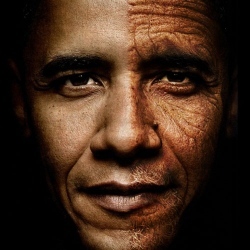
Calico isn’t your typical biotech company. Rather than focusing on diseases, Calico was founded to cure aging. According to Page, expanding the human life span by as much as 100 years is the company’s goal. But Google’s Calico isn’t the only project with such ambitions as to bring the health threats from aging under medical controll.
"[Aging and illness] affect us all; from the decreased mobility and mental agility that comes with age, to life-threatening diseases that exact a terrible physical and emotional toll on individuals and families," Page said in a statement. "And while this is clearly a longer-term bet, we believe we can make good progress within reasonable timescales with the right goals and the right people."
In September 2014, Calico partnered with the $112 billion biotech firm AbbVie Inc. Both companies provided $250 million in funding to fight diseases associated with old age. Together, Calico and AbbVie are creating a research center in San Francisco.
Peter Thiel, billionaire hedge fund manager and founder of PayPal, has made anti-aging his next big venture. Thiel has contributed $3.5 million to the anti-aging non-profit Methuselah Foundation. Its mission is to find drugs that cure types of age-related damage like loss of cells and excessive cell division.
And Thiel is using his nonprofit, Breakout Labs, to fund dozens of other scientists working toward the goal of immortality. So far, he’s given 22 startups anywhere from $50,000 to $350,000.
Larry Ellison, co-founder of Oracle Corp, finds accepting mortality "incomprehensible." Peter Diamandis, the founder of the X-Prize and International Space University, has recently founded a company called "Human Longevity Inc."
This company’s sole purpose is to extend the healthy human life span as long as possible. And Diamandis is offering a $10 million prize for technology that gets us closer to that goal.
And these huge investments are starting to pay off. A gene therapy treatment is already in advanced clinical trials at Stanford University. In January 2015, it was discovered that the treatment reversed the biological age of 60-year-old human skin and muscle cells by 25 years. After just a "few days of treatment," the cells became indistinguishable from those of a 35-year-old.
Harvard doctors are researching this too. Recently, they activated the same gene in mice. It extended the average life span from two years to almost four years. Best of all, these new developments will create one of the greatest investment opportunities of our lifetime. The anti-aging market is expected be worth $345 billion annually by 2018.
